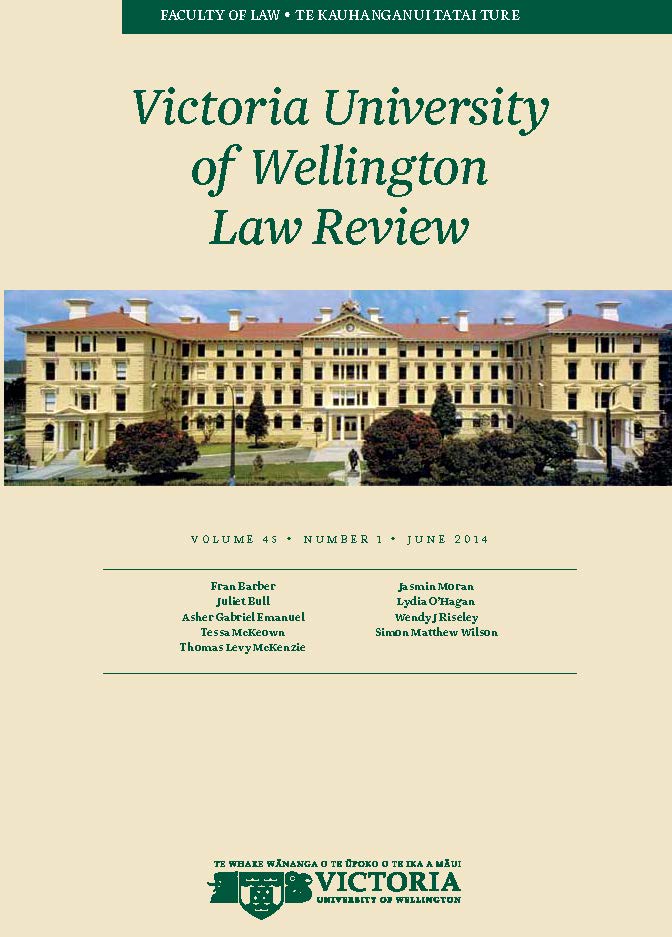Same-Sex Marriage and Religious Exemption Under the Marriage Act: Where does Section 29 Leave Religious Objectors?
DOI:
https://doi.org/10.26686/vuwlr.v45i1.4962Abstract
This article examines the Marriage (Definition of Marriage) Amendment Act 2013, which amends the Marriage Act 1955 to allow same-sex couples to marry. In particular, it examines the legal position of celebrants who wish to refuse to solemnise same-sex marriages on religious grounds, and attempts to reconcile these celebrants' religious freedoms with the rights of same-sex couples not to be discriminated against based on their sex and/or sexual orientation. While s 29(2) of the Marriage Act now contains a specific exemption for some classes of celebrants, the scope of this exemption is narrow, and not all celebrants are included. This article therefore examines the meaning of s 29(1) of the Marriage Act, and addresses the controversial issue of whether s 29(1) provides a broad exemption for all celebrants. This article asserts that s 29(1) does provide such an exemption, and accordingly all celebrants are able to refuse to solemnise same-sex marriages on religious grounds, despite the limitations in the s 29(2) exemption.
Downloads
Downloads
Published
How to Cite
Issue
Section
License
Authors retain copyright in their work published in the Victoria University of Wellington Law Review.


